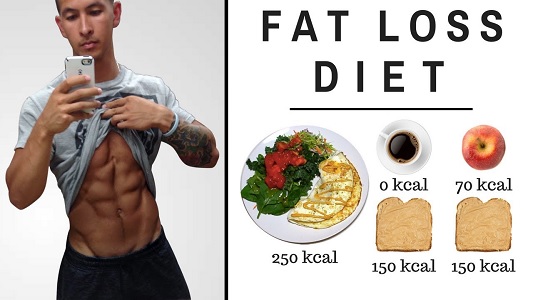Effective Fat Loss: Are you tired of trying various diets and weight loss programs without seeing significant results? Are you struggling to shed those stubborn pounds and achieve the body composition you desire? Well, you’ve come to the right place! In this blog post, we’ll delve deep into the world of diet, fat loss, average weight, and body composition. Prepare to uncover the science behind changes in weight and the magic number of 4.6kg that could be your ticket to a healthier, happier you!
The Basics of Diet and Fat Loss

What Exactly is Diet, and How Does it Impact Fat Loss?
Let’s start by demystifying the concept of “diet.” The term “diet” has been tossed around a lot, but what does it really mean? A diet refers to the types and quantities of food a person consumes regularly. It plays a crucial role in determining your body’s overall health and composition.
When it comes to fat loss, your diet is like the captain of the ship. It can make or break your weight loss journey. But don’t worry; we won’t be recommending any crash diets or extreme fasting regimens here. Instead, we’ll explore sustainable and effective ways to help you lose those extra pounds and keep them off.
The Connection Between Diet and Average Weight
You might wonder, “What’s the deal with average weight, and how is it connected to my diet?” Great question! Your average weight refers to the typical weight you maintain over a certain period. It is influenced by factors like genetics, lifestyle, and, of course, your diet.
To achieve a healthy average weight, you need a diet that provides the right balance of nutrients while considering your body’s unique needs. We’ll guide you through making informed choices that can lead to a sustainable and balanced average weight.
Understanding Body Composition and Its Relationship with Diet
Now, let’s talk about body composition. It’s not just about the number you see on the scale; body composition is about understanding what makes up your body—muscles, bones, organs, and, yes, fat. An ideal body composition includes a healthy balance of these components.
Diet plays a pivotal role in shaping your body composition. With the right dietary choices, you can promote muscle gain, reduce body fat, and improve overall health. We’ll share tips on how to optimize your diet to achieve the body composition you’ve always dreamed of.
Related: 6 Powerful Ways to Deal with Under-Eye Puffiness and Dark Circles
The Science Behind Effective Fat Loss
Lost 4.6kg: The Magic Number of Weight Loss
You’ve probably heard success stories of people losing exactly 4.6kg and experiencing significant improvements in their health. Well, this isn’t just a coincidence. Studies have shown that losing an average of 4.6kg can have a profound impact on health outcomes, such as reducing the risk of type 2 diabetes and cardiovascular diseases.
But why 4.6kg? Scientists believe that this amount of weight loss triggers metabolic changes that lead to improved health markers. Moreover, losing 4.6kg is attainable for most individuals, making it an excellent target for your weight loss journey.
The Ups and Downs of Weight Loss: Changes in Weight and Regain
Weight loss isn’t always a linear process. There are ups and downs, and it’s normal to experience fluctuations. Understanding these changes in weight is crucial for staying motivated on your fat loss journey.
One study found that individuals who lost weight through various weight loss interventions experienced fluctuations in their weight, even after reaching their target. However, most participants were able to maintain at least some of their weight loss. This indicates that weight maintenance is an ongoing process that requires dedication and mindful eating habits.
The Battle of the Bulge: Fighting Fat Mass with Diet
Excess fat mass can be a significant concern for many, especially those who are overweight or obese. But fear not! Your diet is a powerful weapon in the battle against fat mass.
Research has shown that certain diets, like the low-fat diet, can improve weight loss and body fat percentage in obese women. Additionally, a diet rich in fiber can help you feel fuller for longer, ultimately reducing your caloric intake and aiding in fat loss.
The Key Factors for Sustainable Fat Loss

Beyond the Scale: Looking at BMI and Waist Circumference
While the scale provides a useful metric for tracking weight loss, it’s not the only measurement that matters. Body Mass Index (BMI) and waist circumference are essential indicators of your health and body composition.
Studies have found that even modest weight loss (e.g., 2 lbs) can lead to improvements in BMI and waist circumference, both of which are associated with better health outcomes. So, it’s not just about the numbers on the scale but the overall impact on your body’s health.
Unraveling the Mystery of Long-Term Weight Loss
A common concern among individuals embarking on a weight loss journey is whether they’ll be able to sustain their progress in the long run. Well, we’ve got good news! Research suggests that long-term weight loss is possible with the right strategies.
Maintaining weight loss involves creating a balanced diet plan that you can stick to in the long term. Avoid fad diets that promise quick fixes and instead focus on lifestyle changes and mindful eating. This approach will help you achieve real weight loss and ensure you don’t regain the weight you worked hard to lose.
Losing Fat, Not Muscle: The Role of Caloric Intake
When trying to lose weight, one of the biggest concerns is losing muscle mass instead of fat. But with the right diet, you can minimize muscle loss and focus on shedding fat instead.
A caloric deficit, i.e., consuming fewer calories than your body needs, is essential for weight loss. However, drastically cutting calories can lead to muscle loss. To avoid this, aim for a moderate caloric deficit that allows you to lose fat while preserving lean muscle mass. Pair this with regular strength training to improve weight loss outcomes and body composition.
You May Also Like: Exciting Netflix The Witcher Season 3: Release Date, Part 2, and More
FAQ’s About Effective Fat Loss:
Q: Which diet is best for maximum fat loss?
A: The best diet for maximum fat loss is one that creates a caloric deficit and focuses on whole, nutrient-dense foods. Popular options include the Mediterranean diet, low-carb diets, and intermittent fasting.
Q: What foods help burn belly fat?
A: Foods that can help burn belly fat include fruits, vegetables, whole grains, lean proteins, nuts, and seeds. Additionally, foods rich in fiber and those with metabolism-boosting properties, like green tea and chili peppers, can be beneficial.
Q: What are 20 foods that burn fat?
A: Sure, here are 20 fat-burning foods: Avocado, Berries, Greek Yogurt, Quinoa, Oatmeal, Green Tea, Chia Seeds, Salmon, Almonds, Spinach, Broccoli, Lean Turkey, Lentils, Grapefruit, Sweet Potatoes, Cinnamon, Eggs, Chicken Breast, Watermelon, and Apple Cider Vinegar.
Q: Are eggs good for weight loss?
A: Yes, eggs are an excellent choice for weight loss. They are rich in protein and healthy fats, which help keep you full and satisfied, reducing overall calorie intake.
Q: Can I eat 2 eggs every day for weight loss?
A: Absolutely! Including 2 eggs in your daily diet can be a healthy and filling option for weight loss. Just ensure you balance them with a variety of other nutritious foods.
Q: Is 4 eggs a day too much?
A: While eggs are nutritious, eating 4 eggs every day might not be necessary or ideal for everyone. It’s essential to consider your overall diet and consult with a healthcare professional to determine what works best for you.
Conclusion Of Effective Fat Loss:
In conclusion, diet is the cornerstone of effective fat loss and achieving a healthy body composition. By understanding the science behind weight loss, the significance of losing 4.6kg, and the importance of long-term dietary strategies, you can unlock the secrets to sustainable fat loss.
Remember to focus on more than just the numbers on the scale—pay attention to BMI, waist circumference, and overall health markers. With the right dietary choices and lifestyle adjustments, you’ll be well on your way to a healthier, happier you!
Visit: Kinsmith Finance Service: Your Partner in Achieving Financial Freedom
Key Takeaways:
- Diet plays a vital role in fat loss and body composition.
- Losing an average of 4.6kg can lead to significant health improvements.
- Fluctuations in weight are normal, but weight maintenance is crucial.
- BMI and waist circumference are essential indicators of overall health.
- Sustainable fat loss requires a balanced diet and lifestyle changes.




